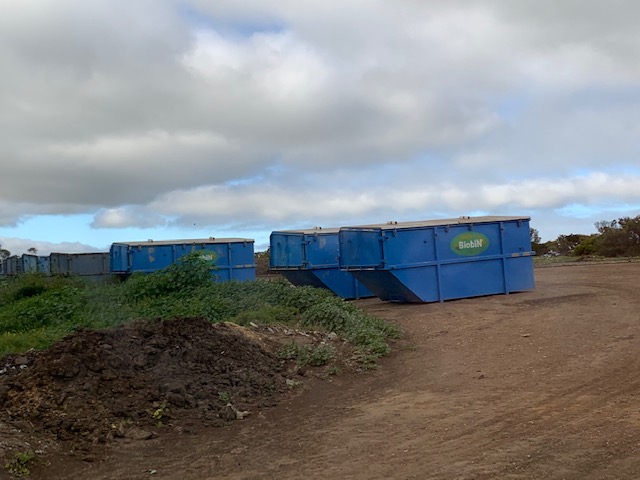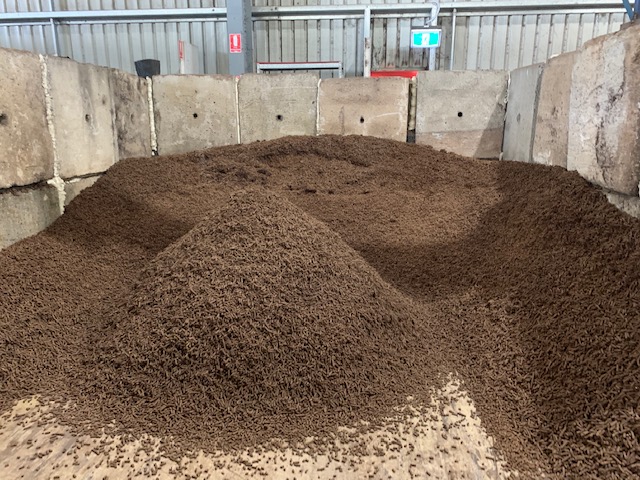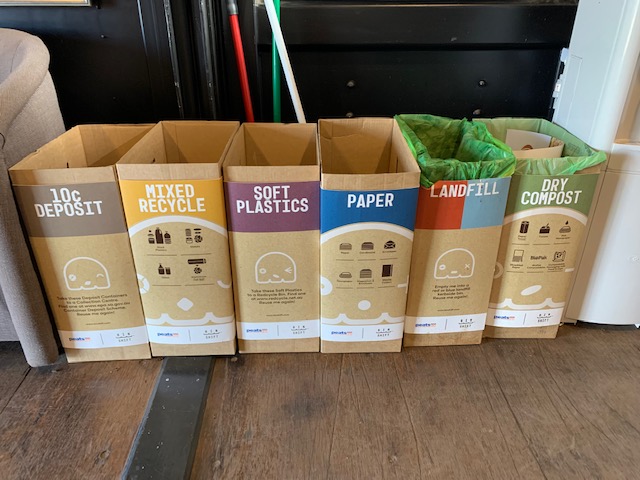
Biodegradability is the natural process that occurs when a product breaks down. Compostability requires a certain setting which facilitates the breaking down.
Today CMBD members and I visited Peats Soil and Garden Supplies composting facility in South Australia. Peter Wadewitz, the Managing Director, showed great interest toward seaweed bioplastic materials, as products that are both biodegradable and compostable.

Peter Wadewitz informed us about the Australian Package Covenant Organization (APCO). In mid-2018 at the Meeting of Environment Ministers (MEM) forum, the state and federal governments agreed to four Australian National Packaging Targets with the aim to reduce our waste problem by the year 2025.
Australia’s 2025 National Packaging Targets:
- 100% of packaging to be reusable, recyclable or compostable
- 70% of plastic packaging recycled or composted
- 50% average recycled content across all packaging
- Phase Out problematic and unnecessary single-use plastic packaging (packagingcovenant.org.au)
The 2025 Australian National Packaging targets together with the recent Chinese ban on receiving the world’s plastic waste have situated our work with biodegradable plastic within a massive opportunity to bring about real changes in thinking and actions relating to the plastics problem.
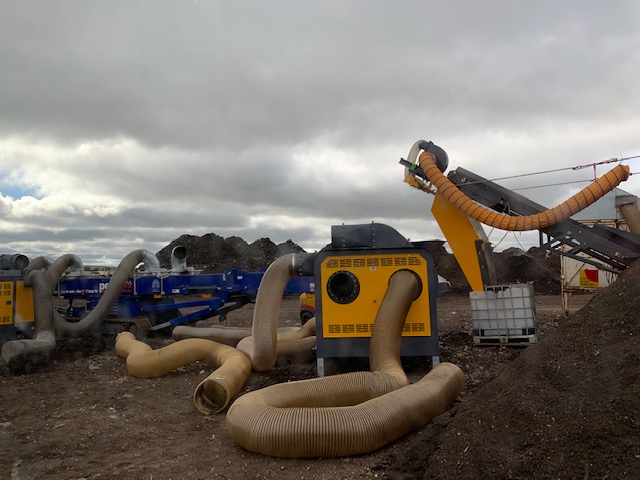
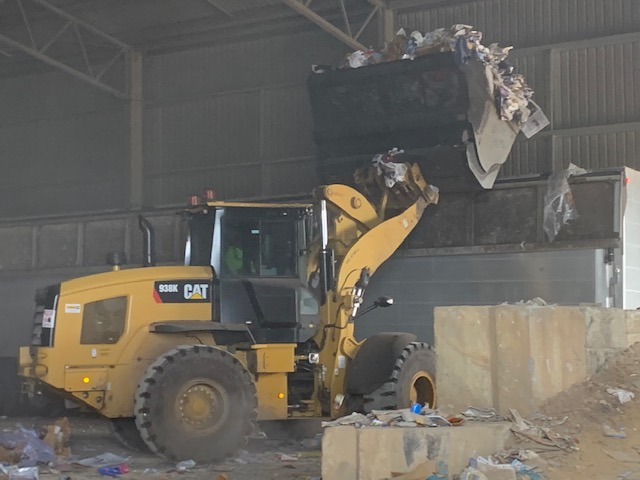
Biological action within a properly composting ‘BiobiN’ can generate temperatures around 60-70 degrees celsius, effectively killing waste contaminated with viruses. Technology such as this creates opportunity for safe disposal of medical waste including models/products we have been working on e.g. surgical masks. Specifically pertinent, it seems, during the current situation in which more medical waste will be generated due to laws in Australia requiring people in lockdown or high risk areas wear facial masks whenever they leave home.
